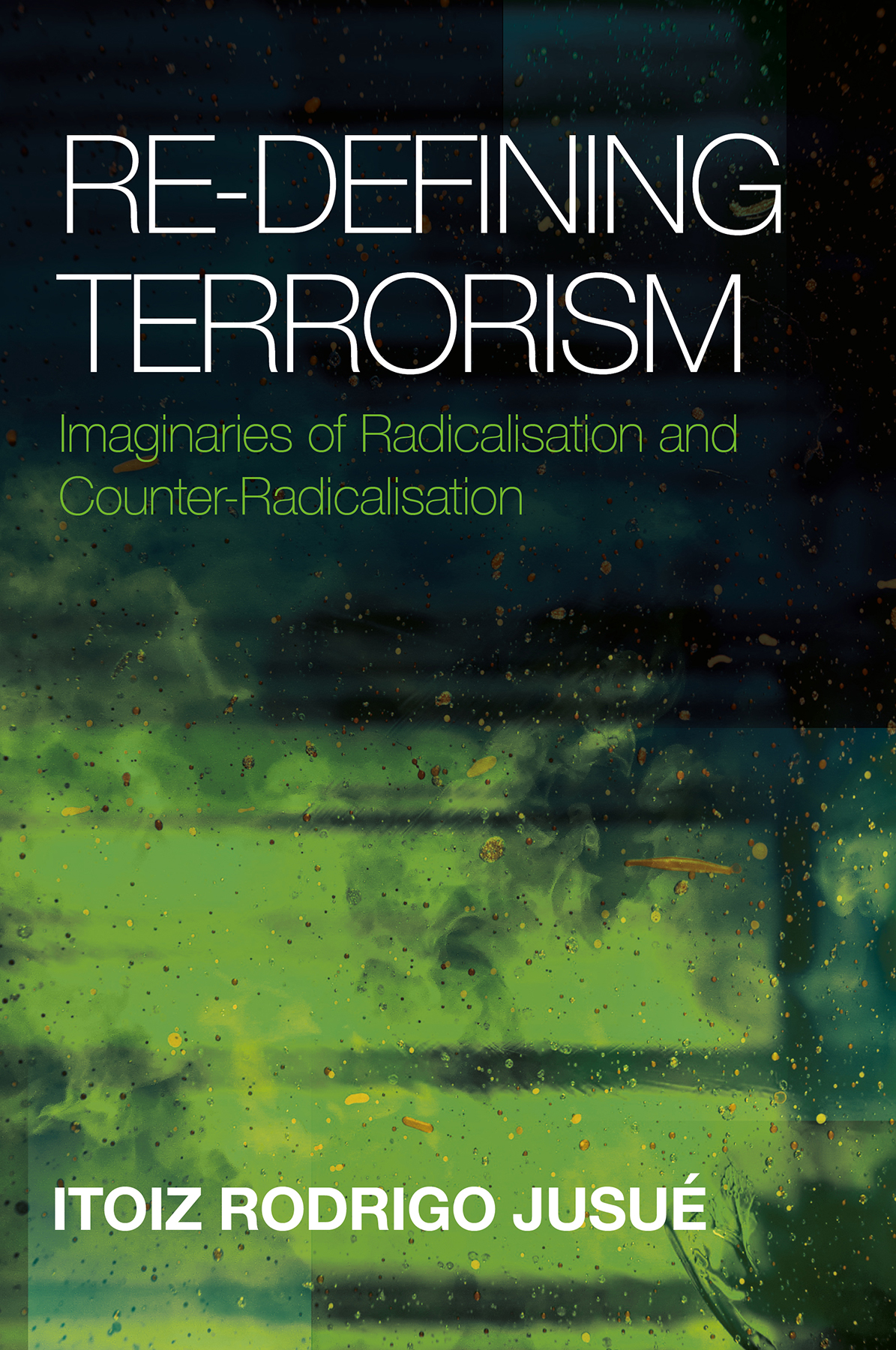
Re-Defining Terrorism: new book by Itoiz Rodrigo Jusué
In Re-Defining Terrorism: Imaginaries of Radicalisation and Counter-Radicalisation, CRCC member Itoiz Rodrigo Jusué delivers a timely and thought-provoking exploration of how counter-radicalisation has emerged as a powerful force shaping contemporary political and cultural life. The book breaks new ground in the study of counter-radicalisation and extremism prevention strategies – an area that remains relatively new and rapidly evolving in both the UK and globally.
Drawing on a rich body of qualitative data, the book offers a comprehensive and innovative analysis of how counter-radicalisation discourses and practices have developed, providing an original and in-depth exploration of the agenda and its far-reaching societal effects. It compellingly demonstrates how the language and narratives of (counter)radicalisation have permeated popular culture, creating new ways of understanding and addressing terrorism and political violence in the UK and beyond.
Re-Defining Terrorism conceptualises (counter)radicalisation as a new technology of government – a dispositif – that actively shapes mentalities, behaviours, and identities, producing new ways of thinking about risk and security. Each chapter addresses a different aspect of this dynamic. The opening chapter lays the conceptual foundation, introducing readers to the (counter)radicalisation dispositif and detailing its emergence as a framework for regulating conduct and shaping subjectivities. Through detailed analysis, Chapter 2 explores how (counter)radicalisation constructs new social imaginaries of risk and terror, and how perceptions of who or what constitutes a threat have been reconfigured – with discriminative consequences for particular individuals and communities. Chapter 3 delves into the gendered dimensions of counter-terrorism and counter-radicalisation, critically examining how the (counter)radicalisation apparatus has reshaped understandings of feminism and women’s roles in political violence.
Examining the emergence of ‘self-radicalisation’ discourses, Chapter 4 examines how the (counter)radicalisation dispositif has introduced new ways to understand the relationship between the media and terrorism, and how it has legitimised illiberal approaches to media regulation. In its final chapter, Re-Defining Terrorism critically considers how counter-radicalisation policies and practices have filtered into everyday life, assigning new security roles and responsibilities to the general public. The book concludes with a reflection on the relationship between counter-radicalisation strategies and the normalisation of illiberal measures, while emphasising the urgent need to develop non-violent approaches to political violence and conflict.
Re-Defining Terrorism will appeal to a wide range of readers, from policymakers and practitioners to undergraduate and postgraduate students. Its interdisciplinary scope makes it especially relevant for those studying (counter)terrorism and security, media and communication, cultural studies, gender, social policy, and peace and conflict studies.